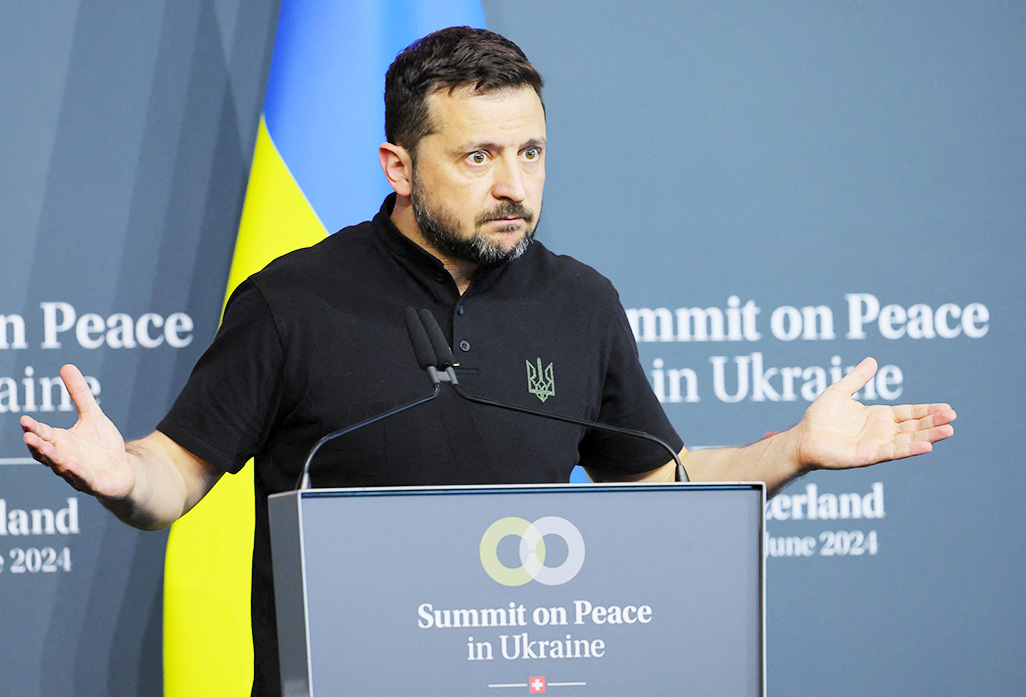Russia said on Monday that a Swiss-hosted conference on the Ukraine war had produced negligible results and showed the futility of holding talks without Moscow.
The Kremlin was commenting on a weekend summit where Western powers and their allies denounced Russia’s invasion of Ukraine but failed to persuade major non-aligned states to join their final statement.
Kremlin spokesman Dmitry Peskov said the results of the meeting, to which Russia was not invited, were “close to zero”.
At a daily briefing with reporters, Peskov was asked if the fact that countries such as Hungary, Serbia and Turkey had taken part in the meeting and signed the statement would spoil Russia’s relations with them.
“No, it won’t spoil them. We will, of course, take into account the position that these countries have taken, this is important to us and we will continue to explain our reasoning to them,” Peskov said.
“Many of them, and this was a common point of view on this event, confirmed their understanding of the absence of prospects for any serious, substantive discussions without the presence of our country…If we talk about the overall effectiveness of this meeting, it is close to zero.”
President Vladimir Putin said last week that Russia was willing to end the war, but he set out conditions for Ukraine – renouncing its NATO ambitions and withdrawing troops from four regions claimed by Russia – that Kyiv rejected as tantamount to capitulation.
“Of course we… understand perfectly that a time will come when it will be necessary to talk to Russia,” Ukrainian Foreign Minister Dmytro Kuleba said. “But our position is very clear: We will not allow Russia to speak in the language of ultimatums like it is speaking now.”
Peskov said that what he called Putin’s peace initiative remained on the agenda, and reaffirmed Moscow’s position that it was open to dialogue.
State news agency TASS quoted Russian foreign intelligence chief Sergei Naryshkin as saying on Monday that if Putin’s conditions were rejected, they would be replaced by new and tougher terms.
Well into the war’s third year, Russia controls nearly a fifth of Ukraine and has advanced gradually on several fronts since February.
More than 90 countries attended the two-day talks in Switzerland. But a decision by China to stay away all but assured that the summit would fail to achieve Ukraine’s goal of persuading major countries from the “global South” to join in isolating Russia.
The summit’s final declaration called for Ukraine’s control over the Zaporizhzhia nuclear plant and its Azov Sea ports to be restored.
But in line with the conference’s more modest stated aims, it omitted tougher issues of what a post-war settlement for Ukraine might look like, whether Ukraine could join the NATO alliance or how troop withdrawals from both sides might work.






Click here to change your cookie preferences